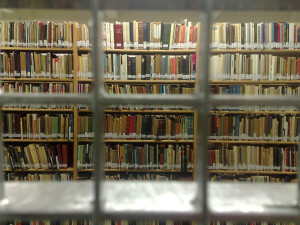
Picture: simonbooth.
Björn Brembs opens his essay “Open access and the looming crisis in science” in the website The Conversation warning that “There is a looming crisis in science, and we must act now to prevent it.” And he finishes it highlighting the SciELO model solution for open access.
Open Access to scientific publications has been consolidating as an international movement for over twenty years. The two main options that scholar communication openly publishes contents are referred to as green and golden roads. The former comprises auto-archiving of manuscripts into open access institutional or thematic repositories, the latter include both hybrid and full open access journals.
One of the facts that triggered the Open Access movement was the scholarly journals crisis in the years ’60, when publishers increased the subscriptions fares higher above inflation. This lead to establish a citation based journal ranking system to decide which journals a library should subscribe.
Scientific impact measured by citation based indicators dictates the rules to scholarly communication today. Every researcher seeks to publish in a high impact journal in order to gain recognition from his peers, get career promotions or tenure and obtain grants. The publishers respond to this demand keeping their most prestigious journals closed-access and increasing the articles rejection rates, which in top journals can reach up to 90%.
If this impressive number would correlate to originality, technical quality, consistent methodology and good reproducibility, it will be justified. However, it has been shown that articles qualifications such as novelty or importance did not correlate with journal impact. Moreover, authors pushed by the pressure to publish in high impact journals struggle to find a way to present their papers as important and innovative. Publishers, on the other hand, struggle to keep their business model and do what is necessary to survive. From both ends, the interests of science are neglected and readers and libraries ignored.
One of the most awful consequences of this vicious circle is that the number of retracted papers has been increasing steadily since 2000. Scientists and publishers must work together in order to revert this tendency and restore the reliability of science. Scientific communication is the most relevant step of research and therefore, action must be taken at this very stage to prevent further damage. International corporate publishers must adjust their business models in order to allow free access to science that tax payers, scientists or not, have already paid for.
Open access considers scientific knowledge as a public good and it is a fair solution to render accounts to society of publicly funded research. Open access journals prevail in emerging regions particularly Latin America , with good quality golden road journals, such as those published by the SciELO Network.
Similar initiatives shall be nurtured by researchers and supported by funding agencies, so commercial interests do not overcome those of the whole society.
References
BJÖRK, B.C., WELLING, P., LAAKSO, M., MAJLENDER, P., HEDLUND, T., and GUÔNASON, G. Open access to the scientific journal literature: Situation 2009. PLoS ONE, 2010, vol. 5, nº 6. [cited 29 July 2013]. Available from: www.ncbi.nlm.nih.gov/pmc/articles/PMC2890572
MIGUEL, S., CHINCHILLA-RODRÍGUEZ, Z., and MOYA-ANEGON, F. Open Access and Scopus: A New Approach to Scientific Visibility From the Standpoint of Access, Journal of the American Society for Information Science and Technology. American Society for Information Science & Techology and Wiley, 2011, p. 1130-1145. [cited 29 July 2013] Available from: http://onlinelibrary.wiley.com/doi/10.1002/asi.21532/abstract
Open Access and the looming crisis in science. The Conversation. [viewed 29 July 2013]. Available from: http://theconversation.com/open-access-and-the-looming-crisis-in-science-14950
BREMBS, B., BUTTON, K., and MUNAFÒ, M. Deep impact: unintended consequences of journal rank. Front. Hum. Neurosci., 2013, vol. 7, p. 291. Available from: doi: 10.3389/fnhum.2013.00291
 About Lilian Nassi-Calò
About Lilian Nassi-Calò
Lilian Nassi-Calò studied chemistry at Instituto de Química – USP, holds a doctorate in Biochemistry by the same institution and a post-doctorate as an Alexander von Humboldt fellow in Wuerzburg, Germany. After her studies, she was a professor and researcher at IQ-USP. She also worked as an industrial chemist and presently she is Coordinator of Scientific Communication at BIREME/PAHO/WHO and a collaborator of SciELO.
Como citar este post [ISO 690/2010]:


















Recent Comments